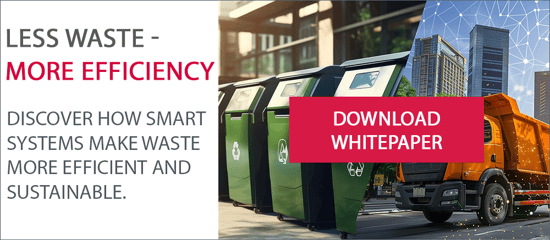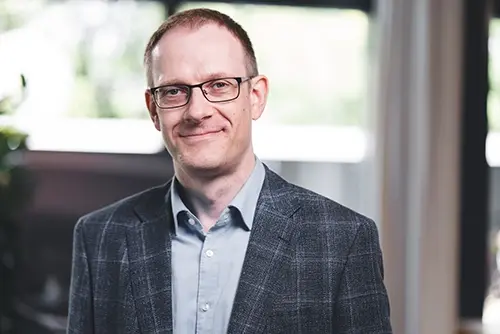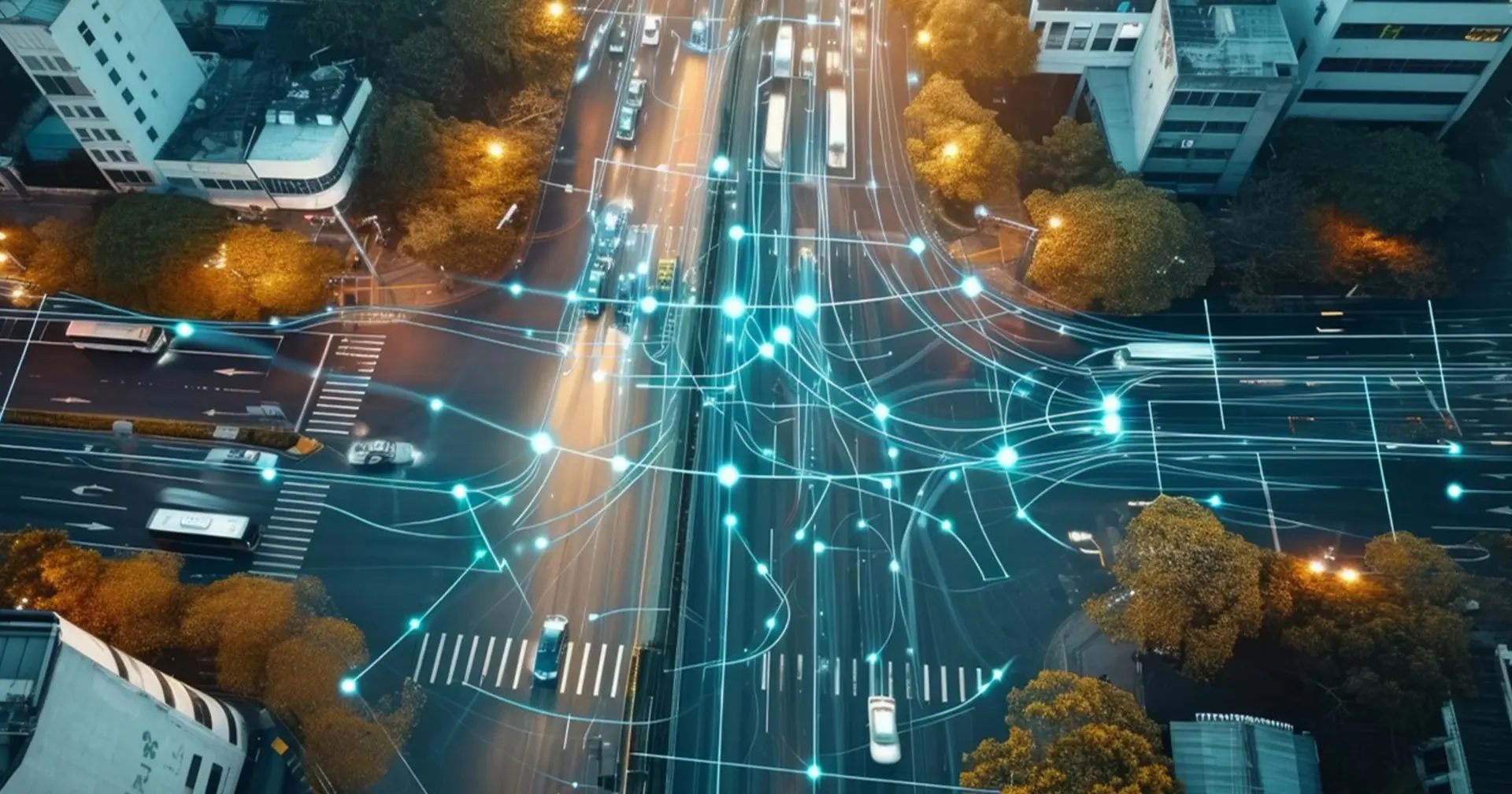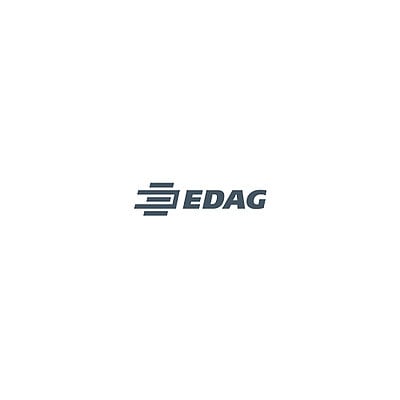In many cities and municipalities, waste is collected on fixed dates and on fixed routes. Whether containers or garbage cans are still almost empty or have been overflowing for days does not matter here, nor does it matter whether the roads are blocked due to a temporary obstruction and the vehicles are then stuck in a traffic jam. This causes unnecessary costs and increases the workload. Intelligent, networked solutions are already available today. Smart waste management uses the possibilities of digitalization for optimization and thus raises previously untapped efficiency potential.
What would you think of a city in which waste disposal is efficient, resource-saving, smooth and, in the long term, almost invisible - a distant utopia? No, not at all. A city in which technology and human expertise work together to make the urban space more sustainable is within reach with Smart Waste Management.
The conventional method of disposal is based on fixed collection cycles and rigid routes. This leads to inefficient journeys, as empty or half-empty containers and garbage cans are also collected. Drivers are confronted with unpredictable traffic conditions on a daily basis, which leads to delays and increased stress. Staff shortages and a lack of new recruits further increase the workload for existing staff.
Data collection creates efficiency potential
This is contrasted by an intelligent method of disposal. With the use of IoT sensors, only full containers are approached. Route planning takes real-time traffic data into account, which avoids traffic jams and optimizes travel times. This not only reduces fuel consumption, emissions and process costs, but also improves working conditions for drivers. Last but not least, the cityscape also becomes more attractive when waste and recycling bins are less likely to overflow.
Digitalization also creates the basis for new, more flexible business models. Waste management companies can offer their customers needs-based and dynamic contract and billing models. Instead of rigid collection cycles, services can be billed according to actual volume, which leads to greater customer satisfaction and long-term business relationships.
Ageing and worries about the next generation
One challenge is the aforementioned staff shortage. On the one hand, employees are getting older on average. As a result, many local authorities are desperate to find replacements for those who are retiring. On the other hand, there is a shortage of young talent, meaning that more and more positions are unfilled. This means higher workloads for those remaining - and is in turn a factor that discourages and thus makes the search for new talent even more difficult.
This makes it all the more urgent to use personnel resources efficiently. Flexible route planning, in which empty or barely full containers or garbage cans are not even approached, or which reacts to traffic disruptions and ensures that waste collectors are not stuck in traffic jams for no reason, but can complete the planned workload without overtime, helps to make the job more attractive again.
Proven in practice

Cities such as Barcelona in Spain and Seoul in South Korea, where such projects are already being implemented, show that smart waste management is not a "green table" concept. Here, IoT sensor technology is proving its worth and the desired benefits can actually be achieved. Dynamic route planning and optimization of emptying have made a significant contribution to reducing fuel consumption, emissions and costs and contribute to less strain on staff, citizens and the environment.
And German cities and municipalities are also learning from such examples and implementing their own exciting projects in order to create the basis for urgently needed improvements in waste disposal processes and at the same time in the quality of life - also with the support of the EDAG Group.
Partnership-based support
EDAG Production Solutions (EDAG PS) has many years of expertise in the integration of intelligent systems and the support of transformation processes. It offers holistic "Public Solutions", i.e. solutions for the Smart City and Smart Region, including specifically for Smart Waste applications, which focus on the efficient and effective interaction of people and technology and enable and promote concrete added value for municipalities and waste management companies and their staff as well as for citizens and other "users" of urban space. The services of EDAG PS include
- Consulting and analysis: Identification of potentials and challenges in your current waste management system
- Employee integration: Development of training programs and workshops involving various management and operational levels, including your vehicle crews, to identify implementation hurdles and to jointly develop ideas and concepts in close cooperation.
- Technology implementation: planning and integration of IoT sensor technology, integration and development through to operation of data analysis and control systems for smart dashboards, dynamic route planning and other smart waste use cases and tools
- Support and further development: Continuous support and adaptation of the systems and processes to your needs
Would you also like to find out more about the potential of digitally optimized waste management? Then talk to our expert Nico Marzian, Project Manager & Business Development Manager Smart City & Smart Infrastructure. He can also advise you on options for other smart city topics, such as traffic management (Smart Traffic Management), municipal water management (Smart Water Management) and traditional and new forms of agriculture (Smart Farming). Or download our white paper "Cost reduction in waste management thanks to smart waste management" here, which highlights the opportunities in waste management and also presents other practical applications.






